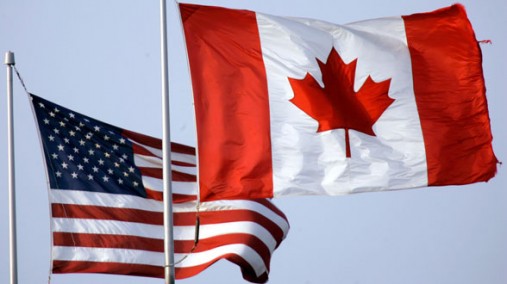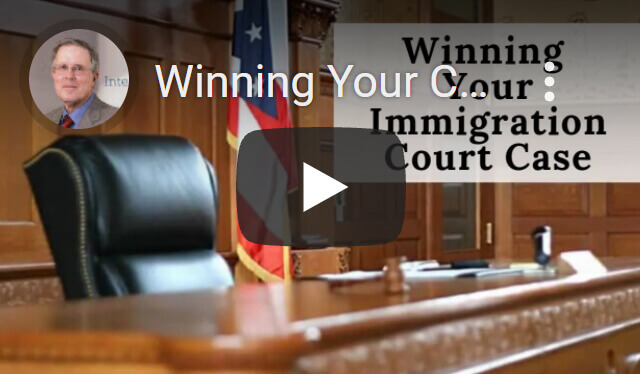 Brian’s mother Fay and his father Raymond Keith Olsen were both born in Canada in the late 1920’s. Fay’s father, Lester Curtis Stewart, was born in Canada in 1895. Brian’s paternal grandfather, Raymond Verl Olsen, was born in Canada in 1900. In addition, both of their wives were born in Canada. Normally, when one’s parents and grandparents were born outside the U.S., one’s chances of acquiring US citizenship through parents start to approach zero.
Brian’s mother Fay and his father Raymond Keith Olsen were both born in Canada in the late 1920’s. Fay’s father, Lester Curtis Stewart, was born in Canada in 1895. Brian’s paternal grandfather, Raymond Verl Olsen, was born in Canada in 1900. In addition, both of their wives were born in Canada. Normally, when one’s parents and grandparents were born outside the U.S., one’s chances of acquiring US citizenship through parents start to approach zero.
Prior to 1934, the US immigration law governing derivative citizenship provided that:
All children heretofore born or hereafter born out of the limits and jurisdiction of the United States, whose fathers were or may be at the times of their birth citizens thereof, are declared to be citizens of the United States; but the rights of citizenship shall not descend to children whose fathers never resided in the U.S.
Client Reviews

Very Efficient and Professional!
“I would like to thank the team of Carl Shusterman’s Office who took care of my application for naturalization. Everything went well and very fast! Very efficient and professional!”
- Jennie Kil, San Francisco, California
Read More Reviews
Zoom Consultations Available!
Brian’s paternal great-grandfather, Benjamin Franklin Olsen, was born in St. Louis, Missouri on April 13, 1862. Under the US immigration law quoted above, his Canadian-born son, Raymond Verl Olsen acquired U.S. citizenship at birth through his father. What’s more, Brian’s father, Raymond Keith Olsen, who was born prior to 1934, acquired U.S. citizenship through his father, since we had proof that Raymond Verl Olsen had resided in the U.S. in 1917.
The problem was that Brian did not acquire U.S. citizenship simply because his father was a U.S. citizen. This is because Brian was born in 1951, and the post-1934 laws required his father to reside in the U.S. for ten years prior to Brian’s birth in order to pass along citizenship to Brian. Unfortunately, Brian’s father’s residence in the U.S. was for far less than ten years. We were at the end of the road regarding Brian’s citizenship unless his mother was also a U.S. citizen. If both parents are citizens of the U.S., the US immigration law waives the ten-year residency requirement. Brian would be an American citizen through both of his parents.
Brian’s mother, Fay Stewart’s family history was more complex than her husbands’. Her father, Lester Curtis Stewart, was born in Canada, but her grandfather, Vincent Isiah Stewart, was born in Utah in 1865. Her father had resided in the U.S. prior to her birth. Seemingly, her claim to obtaining US citizenship was identical to that of her husband with one significant exception. At the time of her grandfather’s birth in 1865, Utah was a territory, not a state, and her grandfather had immigrated to the U.S. prior to Utah’s entry into the U.S. Was this the end of the road for Brian’s citizenship? Read on.
Fay Stewart’s paternal great-grandfather, Isaiah Lawrence Stewart, and his wife, Elizabeth Hatch Shurtliff, were both born in the U.S., in 1837 and 1843, respectively. This allowed their son, Vincent Isiah Stewart, to acquire citizenship at birth. And since Vincent briefly resided in the State of Idaho before immigrating to Canada, he passed along American citizenship to his Canadian-born son, Lester Curtis Stewart. Before the birth of his daughter Fay, Lester Curtis Stewart served as a religious missionary for the Church of the Latter Day Saints in Kansas and Missouri. Therefore, his daughter Fay, who was born prior to 1934, acquired U.S. citizenship through her father.
Therefore, both of Brian’s parents, although they were born abroad, were U.S. citizens at birth, and therefore, transmitted U.S. citizenship to their children.
We obtained 11 exhibits in support of an application for U.S. citizenship for Brian’s father, and 16 exhibits for Brian’s mother. We bypassed the United States Immigration Service, and applied for U.S. passports at a U.S. Consulate in Canada. Once both of his parents had obtained passports, it was all downhill sledding for Brian. He was quickly granted a U.S. passport.
He has obtained citizenship through grandparents, great-grandparents, etc.
It was the most complex citizenship case that I had handled in my career, and one that I will never forget.
For more information, please see our US Citizenship through Parents page.
Read more of our Immigration Success Stories.








